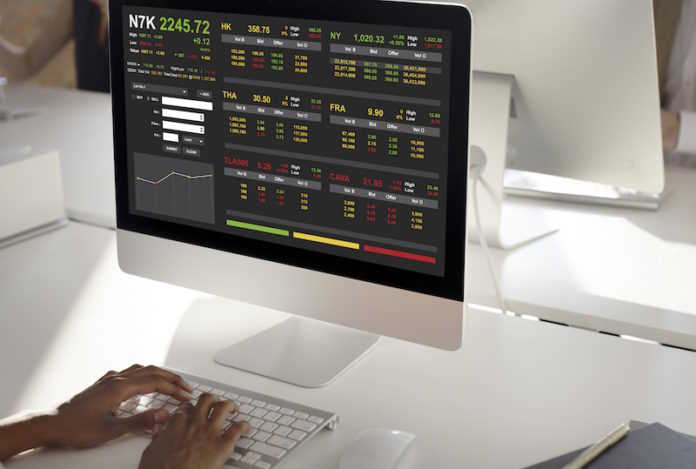A contract for difference (CFD) is a financial instrument that allows investors to trade the price movement of underlying assets such as stocks, commodities, currencies, and indices, without actually owning the underlying asset. When a trader buys a CFD, they are essentially entering into a contract with a broker to exchange the difference between the opening and closing price of the underlying asset. If the underlying asset price moves in the trader’s favour, they can make a profit, and if it moves against them, they will make a loss.
CFDs are traded on margin, which means that traders can open larger positions than their actual capital. CFDs offer traders the option to go long or short on the underlying asset, meaning that they can profit in both rising and falling markets.
How CFDs Work
CFDs are essentially an agreement between two parties to exchange the difference between the opening and closing price of the underlying asset. When a trader buys a CFD, they are essentially buying a contract that mirrors the movement of the underlying asset. If the underlying asset moves in the trader’s favour, they can make a profit, and if it moves against them, they will make a loss.
CFDs are traded on margin, which means that traders can open larger positions than their actual capital. Margin trading can increase profits, but it also increases the potential losses. When a trader opens a CFD position, they are required to pay a percentage of the total value of the position as a deposit or margin. The margin requirement varies from broker to broker and can range from 1% to 50% of the total value of the position.
CFDs also offer traders the option to go long or short on the underlying asset. When a trader goes long, they are speculating that the price of the underlying asset will increase, and when they go short, they are speculating that the price will fall. This flexibility to go both long and short means that traders can profit in both rising and falling markets.
Why CFDs Should Form a Part of an Investment Portfolio
CFDs offer several benefits that make them an attractive investment option for traders looking to diversify their portfolio. Here are some of the reasons why CFDs should form a part of an investment portfolio:
Diversification
One of the primary benefits of including CFDs in an investment portfolio is diversification. By investing in a range of underlying assets such as stocks, commodities, currencies, and indices, traders can spread their risk and reduce their exposure to any one particular asset. Diversification is an important risk management strategy that can help protect investors from market volatility.
Access to a Wide Range of Markets
CFDs offer traders access to a wide range of markets, including markets that may be difficult to access through traditional investment vehicles. For example, traders can invest in commodities such as oil, gold, and silver, or trade on exotic currency pairs such as the South African rand or the Thai baht.
Leverage
CFDs offer traders the option to trade on margin, which means that they can open larger positions than their actual capital. This leverage can amplify profits, but it also increases the potential losses. Traders should use leverage carefully and ensure that they have a solid risk management strategy in place.
Short Selling
CFDs also offer traders the option to go short on the underlying asset. This means that traders can profit in falling markets by selling the CFD at a higher price and buying it back at a lower price. Short selling can be a valuable strategy for traders who believe that the price of an asset is overvalued and is likely to fall in the near future.
Low Trading Costs
CFDs generally have lower trading costs than other investment vehicles such as stocks or mutual funds. Traders typically pay a small commission on each trade and may also be required to pay overnight financing charges if they hold a position overnight. However, these costs are usually lower than the fees associated with other investment vehicles.
In conclusion, opening an investment brokerage account can be an excellent way to start investing in the stock market and other financial instruments. By doing so, you gain access to a wealth of investment opportunities and resources. However, it’s important to remember that investing comes with risks, and it’s essential to do your research and seek professional advice before making any investment decisions. With the right mindset, strategy, and guidance, an investment brokerage account can be a powerful tool in building your financial future. Don’t hesitate to take the first step towards investing and opening an investment brokerage account today. To open your free investment account, visit www.capex.com/za.
———
CAPEX.COM/ZA is operated under license in South Africa by JME Financial Services (Pty) Ltd, an authorised Financial Services Provider and regulated by the FSCA FSP number 37166.
About CAPEX.com
CAPEX.com is a leading global trading platform providing its users with expert insights, tools, and resources to make markets accessible to a worldwide audience and offering a tailor-made trading experience. Its professional trading platforms, robust technological infrastructure, and transparent trading conditions have propelled it as one of the most respectable brokers on the international stage.
Anchored by a global presence and regional expertise, CAPEX.com holds operating licenses from Cyprus Securities and Exchange Commission, Abu Dhabi Global Market Financial Services Regulatory Authority, the Financial Services Authority
(FSA) in Seychelles, and the Financial Sector Conduct Authority in South Africa. Visit www.capex.com and follow us on Twitter, LinkedIn, Facebook, and Instagram for more details and insights.
Trading leveraged products involve a significant risk of loss.












